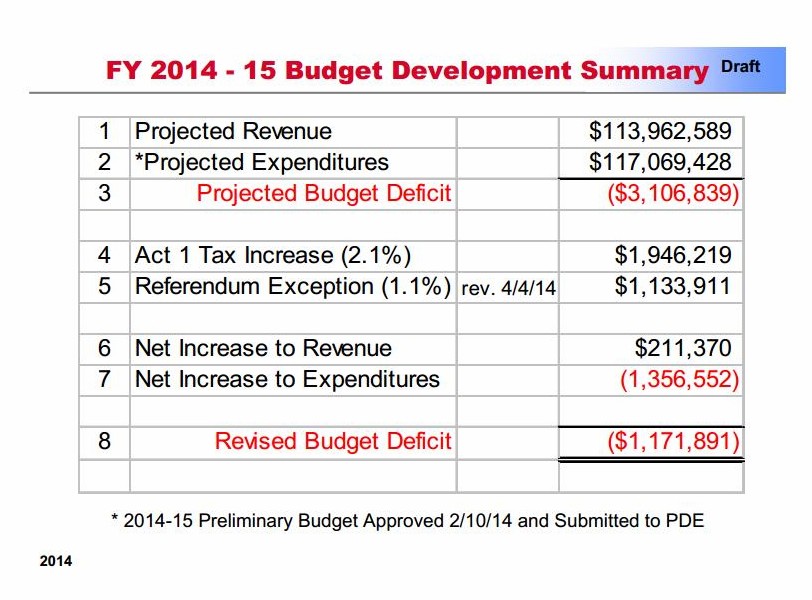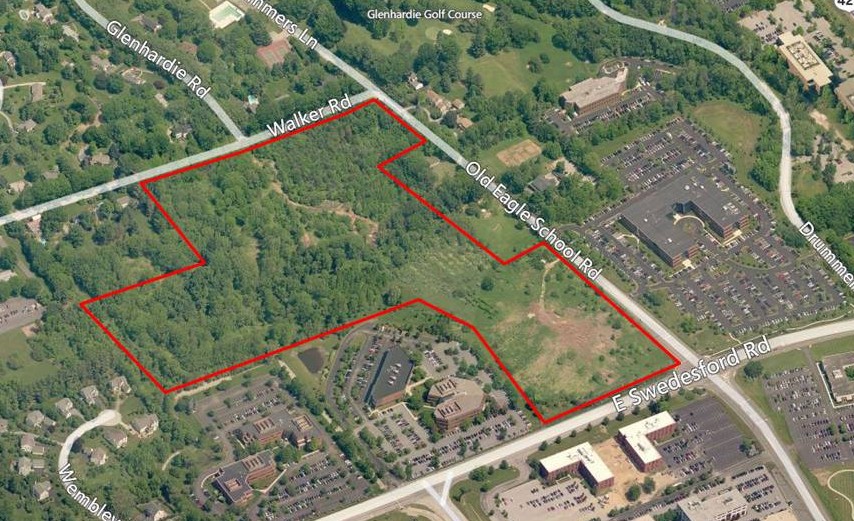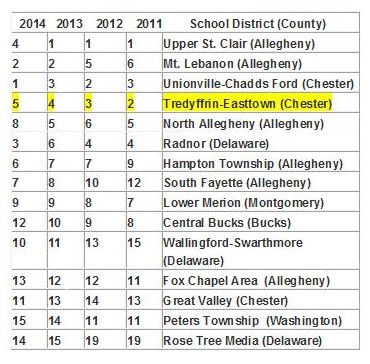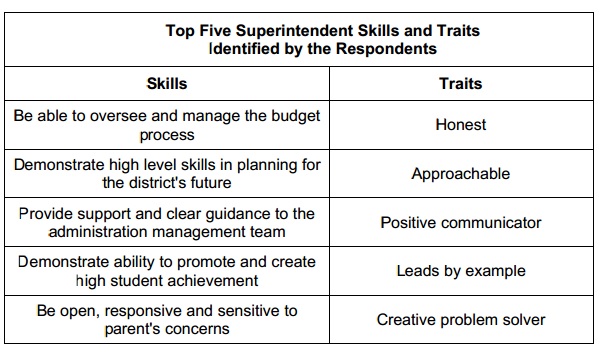Based on Sue Tiede’s notification to retire as TESD Director of Personnel, the school board conducted interviews and last Fall, unanimously approved the hiring of Jeanne Pocalyko as the replacement with a January 2014 start date.
It is now spring — tomorrow is April 1 and I have yet to see (or hear) Ms. Pocaylko, the newly hired voice of the District Personnel Department. Although Pocaylko was hired in January, Sue Tiede continued to be the voice of the District for personnel matters at regular school board and committee meetings.
Typically, I’m guessing that an overlap of two weeks would be the norm as a transition period or maybe, … in certain situations, 30 days. However, in the case of the TESD Director of Personnel position, the overlap between Tiede and Pocalyko began in January and continued through March, ending this past Friday. Well … that’s not entirely accurate. In February, the Board approved extending Tiede’s employment until May 1. Apparently, Tiede will not be ‘on the job’ for the month of April but will be paid the additional month for her unused sick leave. Then at last week’s Board meeting, the Board approved paying Tiede $86/hour, for up to 8 hours, to continue to help Pocalyko in her Director of Personnel job.
It is remarkable that since January the District’s taxpayers have paid the salaries for two Personnel Directors and will continue to do so until May 1. The base salary for Tiede is $178K/yr. and Pocalyko is $167K/yr. In a time when the Board and administration are focused on cost-savings measures and tout the need for fiscal responsibility, it is hard to understand how they rationalize the use of taxpayer dollars in this manner.
It’s not like Pocalyko comes to T/E lacking in experience – she spent the last nine years as the Human Resource director for Dallastown Area School District in York, PA and before that as the Director of Personnel at Upper Merion School District. How could the inner workings of the personnel department of this District be so different from Dallastown and Upper Merion school districts as to require months of on-the-job training from Ms. Tiede?
Once again, this highlights the administration (with school board approval) protecting the most highly compensated District employees while those on the bottom rung – the aides and paras – continue to struggle with the own future economic uncertainty. This should be a real indicator of priorities to District’s aides and paras. The lowest paid employees are considered disposable by some members of the school board and administration but the highest paid administrators continue to get paid more.
Continuing on the subject of personnel matters, is the issue of the superintendent search. According to the terms of his 4-1/2 year superintendent contract, which ends June 30, 2015, Dan Waters needed to give at least 18 months’ notice to the school board to receive all associated contract benefits including retention bonus.
The contract signed February 2, 2010 included a base salary of $225K yearly but that salary will have almost doubled when the contract expires June 2015. Reviewing Waters contract indicates that each January starting in 2011, provides an additional $35K/yr for a competitive market rate adjustment. If you add the $35K yearly adjustment for 2011, 2012, 2013 and 2014 and $17,500 for January – June 2015, the contract moves to a value of $382,500. Additionally, the contract contains a yearly retention bonus of $5K/yr starting in January 2011 which adds an additional $25K to Waters base salary. The base salary of Waters contract in June 2015 is $407,500 in June 2015.
Waters qualifies for supplement retirement pension – for those who worked in the District 25 years or longer, the supplemental rate is 100% of the final year’s base salary. The idea is to compensate administrators for not taking a compensated leave of absence. When Waters retires, he will receive a supplemental retirement payout of $407,500, his base salary in June 2015. It needs to be clear that Waters salary of $400K+ is the base salary only — health insurance, PSERS, car, etc. benefits are additional.
For comparison sake, Unionville Chadds Ford School District recently renewed Superintendent John Sanville’s employment contract for 4 years. Including a 10% increase, Sanville will make a base salary of $210K/yr starting September 2014. Upper Merion School District recently increased their superintendent’s salary – UMSD Superintendent Jane Callaghan base salary was increased to $202K/yr. I think most would agree that Unionville Chadds Ford and Upper Merion school districts are competitive to T/E yet the base salaries of their superintendents are approximately half of TESD superintendent will receive in 2015.
Although there has been no public announcement from the T/E school board that Waters has given his official notification to retire in June 2015, it is clear that he did. I do not believe that Waters would want to risk losing any contract retention benefits! Not sure why this information was not made public.
So the real question becomes – does the School Board tell the public when the superintendent search begins or does the community find out when the decision is made, as was the case with Director of Personnel. Does the Board look for a replacement at the current $400K+ base salary of the T/E superintendent or in the $200K salary range of neighboring school district superintendents? Will the Board decide to do the search ‘in-house’ themselves as they did with the Director of Personnel? Or will the Board utilize the services of an outside consulting company? Another option in the superintendent search – the Chester County Intermediate Unit. That could be a less expensive route than using a consulting company, but Board member Jim Bruce is also Vice President of CCIU, which may create a conflict of interest. Final thought, how does the superintendent search handle community input – or does it?
The major reason to preemptively discuss the superintendent search is to voice a strong opinion that the search needs to go outside the District. Although school board members have never publically acknowledged the low morale of District employees, those issues continue.
 It’s official, the aides and paraeducators of TE School District are taking the necessary steps to unionize. As announced by Supt. Dan Waters at last night’s Finance meeting, this group of employees is currently engaged in the process to join the collective bargaining unit TENIG (Tredyffrin Easttown Non-Instructional Group).
It’s official, the aides and paraeducators of TE School District are taking the necessary steps to unionize. As announced by Supt. Dan Waters at last night’s Finance meeting, this group of employees is currently engaged in the process to join the collective bargaining unit TENIG (Tredyffrin Easttown Non-Instructional Group).




 The use of drugs in suburbia is a growing epidemic – it’s not just on the streets anymore, it’s in suburban neighborhoods. The drug epidemic has pulled cocaine and heroin out of the dark shadows of American cities and into our suburban schools.
The use of drugs in suburbia is a growing epidemic – it’s not just on the streets anymore, it’s in suburban neighborhoods. The drug epidemic has pulled cocaine and heroin out of the dark shadows of American cities and into our suburban schools. Spring is PSSA time for public schools in Pennsylvania and the results for 2014 as reported in the
Spring is PSSA time for public schools in Pennsylvania and the results for 2014 as reported in the 

